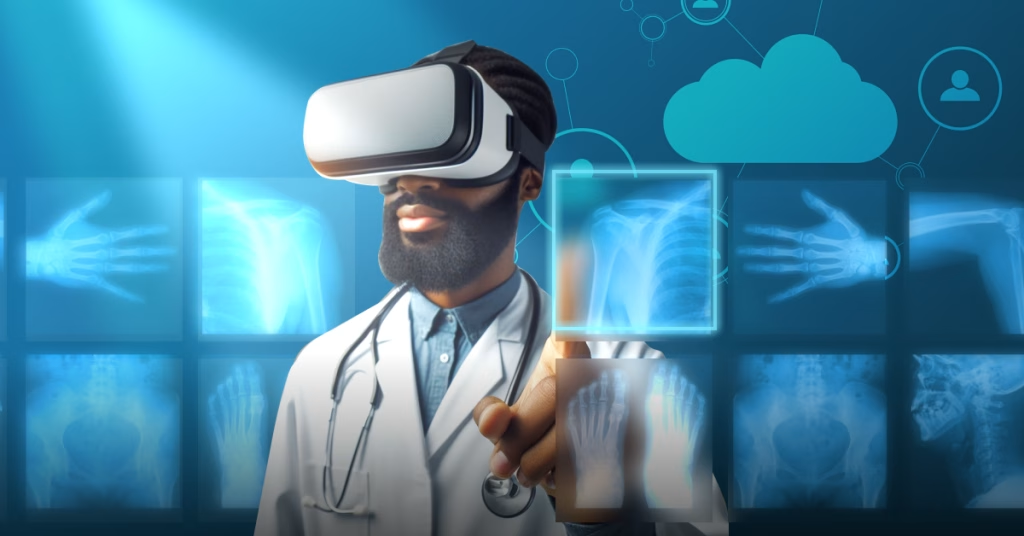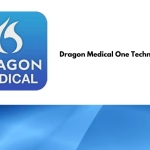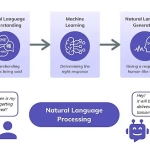The convergence of Microsoft Cloud for Healthcare with Nuance AI technologies represents a revolutionary moment in healthcare delivery, fundamentally transforming how patients experience medical care across all touchpoints. This comprehensive platform combines Microsoft’s robust cloud infrastructure with Nuance’s specialized healthcare artificial intelligence to create seamless, personalized, and efficient patient experiences that extend from initial contact through post-care follow-up.
Healthcare organizations worldwide are leveraging this integrated platform to address persistent challenges in patient engagement, care coordination, and service delivery. The result is a new paradigm where technology serves as an invisible enabler of exceptional patient experiences rather than a barrier to meaningful healthcare interactions.
The transformation goes beyond simple digitization of existing processes to encompass fundamental reimagining of how healthcare is delivered, experienced, and optimized. Patients benefit from more intuitive interfaces, faster service delivery, and personalized care experiences that adapt to individual needs and preferences while healthcare providers gain powerful tools for improving operational efficiency and clinical outcomes.
Understanding Microsoft Cloud for Healthcare Platform
Microsoft Cloud for Healthcare represents a comprehensive, industry-specific cloud solution designed to address the unique challenges and opportunities within healthcare delivery. This platform integrates multiple Microsoft technologies with healthcare-specific applications and services to create a unified ecosystem for healthcare innovation.
Core Platform Components and Capabilities
The platform encompasses several integrated components that work together to support comprehensive healthcare delivery:
- Azure Health Data Services: Secure, compliant infrastructure for health data management
- Microsoft Viva: Employee experience platform adapted for healthcare workers
- Dynamics 365: Customer relationship management tailored for patient engagement
- Microsoft Teams: Collaboration platform optimized for healthcare communication
- Power Platform: Low-code/no-code tools for healthcare application development
These components integrate seamlessly with existing healthcare infrastructure while providing the flexibility needed to support diverse organizational requirements and clinical workflows.
Healthcare-Specific Security and Compliance Features
The platform addresses the stringent security and compliance requirements that characterize healthcare environments through comprehensive safeguards and certifications:
- HIPAA compliance with business associate agreement coverage
- SOC 2 Type II certification for service organization controls
- FedRAMP authorization for government healthcare applications
- ISO 27001 certification for information security management
- Regional compliance support for international healthcare requirements
These security measures ensure that healthcare organizations can confidently deploy cloud-based solutions while maintaining the highest standards for patient data protection and regulatory compliance.
Nuance AI Integration and Healthcare Transformation
The integration of Nuance AI technologies within Microsoft Cloud for Healthcare creates unprecedented opportunities for healthcare transformation through intelligent automation, natural language processing, and predictive analytics tailored specifically for healthcare applications.
Conversational AI for Patient Engagement
Nuance Mix technology powers sophisticated conversational AI applications that transform how patients interact with healthcare systems. These applications understand natural language, maintain context across multiple interactions, and provide personalized responses based on individual patient needs and medical history.
Patient engagement applications include:
- Intelligent appointment scheduling with natural language processing
- Symptom assessment and triage through conversational interfaces
- Medication management with voice-activated reminders and education
- Post-discharge follow-up and care plan adherence monitoring
- Multilingual support for diverse patient populations
The conversational AI capabilities enable healthcare organizations to provide 24/7 patient support while reducing administrative burden on clinical staff and improving overall patient satisfaction.
Clinical Documentation and Ambient Intelligence
The platform integrates advanced clinical documentation capabilities that transform physician workflow while improving patient experience during clinical encounters. Ambient clinical intelligence captures and documents patient interactions without requiring active physician engagement with technology systems.
Clinical documentation enhancements include:
- Real-time conversation capture during patient visits
- Automatic generation of comprehensive clinical notes
- Integration with major electronic health record systems
- Quality assurance and compliance checking for documentation accuracy
- Dragon Medical voice recognition for traditional dictation when needed
This technology enables physicians to focus entirely on patient care during encounters while ensuring that comprehensive, accurate documentation is created automatically.
Predictive Analytics and Population Health Management
Advanced analytics capabilities within the platform enable healthcare organizations to identify trends, predict health risks, and optimize care delivery at both individual and population levels.
Predictive analytics applications include:
- Risk stratification for chronic disease management
- Readmission prediction and prevention programs
- Population health insights for preventive care planning
- Resource utilization optimization and capacity planning
- Clinical outcome prediction and intervention recommendations
These capabilities support proactive, personalized healthcare delivery that improves patient outcomes while reducing costs and resource requirements.
Patient Experience Transformation Across Care Continuum
The integrated platform transforms patient experience across all aspects of healthcare delivery, from initial engagement through ongoing care management and follow-up services.
Digital Front Door and Access Optimization
Modern patients expect convenient, digital-first experiences that mirror their interactions with other service industries. The platform enables healthcare organizations to provide sophisticated digital front door experiences that simplify access to care and services.
Digital access improvements include:
- Intelligent appointment scheduling with provider matching algorithms
- Virtual waiting rooms with real-time updates and communication
- Pre-visit preparation with automated forms and information collection
- Integration with paperport professional systems for document management
- Mobile applications with personalized content and functionality
These digital front door capabilities reduce friction in healthcare access while improving patient satisfaction and operational efficiency.
Telemedicine and Virtual Care Enhancement
The platform’s telemedicine capabilities have become increasingly important as healthcare delivery models evolve to include virtual care options. Integrated video conferencing, clinical documentation, and care coordination tools create seamless virtual care experiences.
Virtual care features include:
- High-quality video and audio for clinical consultations
- Real-time clinical documentation during virtual visits
- Secure messaging and care team communication
- Integration with remote monitoring devices and patient data
- PowerMic integration for voice-activated clinical workflow
These virtual care capabilities ensure that patients receive high-quality care regardless of location while maintaining the clinical rigor required for effective healthcare delivery.
Care Coordination and Communication
Effective care coordination requires seamless communication between patients, providers, and care team members. The platform facilitates this coordination through integrated communication tools and shared care planning capabilities.
Care coordination enhancements include:
- Shared care plans accessible to all care team members
- Real-time communication between providers and patients
- Automated care reminders and follow-up scheduling
- Integration with Nuance PowerShare for radiology and imaging coordination
- Care gap identification and intervention recommendations
These coordination capabilities ensure that patients receive comprehensive, well-coordinated care that addresses all aspects of their health needs.
Clinical Workflow Optimization and Provider Experience
While patient experience remains the primary focus, the platform also significantly improves provider experience and clinical workflow efficiency, which ultimately benefits patient care quality and satisfaction.
Physician Productivity and Satisfaction
Healthcare providers benefit from streamlined workflows, reduced administrative burden, and enhanced clinical decision support that enables them to focus more attention on patient care.
Provider experience improvements include:
- Automated clinical documentation reducing documentation time by up to 70%
- Intelligent clinical decision support with evidence-based recommendations
- Streamlined communication with patients and care team members
- Integration with nuance cloud connector for seamless data access
- Mobile accessibility for on-the-go clinical workflow support
According to Healthcare Financial Management Association, healthcare organizations implementing comprehensive digital transformation initiatives report significant improvements in provider satisfaction and retention rates.
Nursing Workflow and Care Delivery
Nursing staff benefit from enhanced communication tools, streamlined documentation processes, and better access to patient information that supports more efficient and effective care delivery.
Nursing workflow enhancements include:
- Voice-activated documentation and care plan updates
- Real-time access to patient information and clinical guidelines
- Automated medication administration records and safety checks
- Integration with bedside monitoring systems and devices
- Enhanced communication with physicians and care team members
These improvements enable nursing staff to spend more time on direct patient care while ensuring that all clinical requirements are met comprehensively and accurately.
Data Analytics and Performance Optimization
The platform’s comprehensive analytics capabilities enable healthcare organizations to continuously optimize patient experience and clinical outcomes through data-driven insights and performance monitoring.
Patient Experience Metrics and Monitoring
Real-time analytics provide insights into patient experience metrics across all touchpoints, enabling continuous improvement and optimization efforts.
Patient experience analytics include:
- Patient satisfaction scores and trend analysis
- Service delivery metrics and performance indicators
- Patient journey analysis and optimization opportunities
- Communication effectiveness and engagement measurements
- Outcome correlation with experience factors
These analytics enable healthcare organizations to identify improvement opportunities and implement targeted interventions that enhance patient experience and satisfaction.
Operational Efficiency and Resource Optimization
The platform provides comprehensive operational analytics that help healthcare organizations optimize resource utilization, reduce costs, and improve service delivery efficiency.
Operational analytics include:
- Appointment scheduling optimization and capacity management
- Provider productivity and workflow analysis
- Resource utilization and cost management metrics
- Quality metrics and clinical outcome tracking
- Population health management and preventive care effectiveness
These insights enable healthcare organizations to make data-driven decisions that improve both patient experience and operational performance.
Industry-Specific Applications and Use Cases
Different healthcare sectors and specialties benefit from tailored applications of the Microsoft Cloud for Healthcare platform with integrated Nuance AI capabilities.
Hospital Systems and Health Networks
Large hospital systems and integrated health networks leverage the platform’s comprehensive capabilities to create consistent patient experiences across multiple locations and service lines.
Health system applications include:
- Unified patient portals and digital experiences across facilities
- Centralized care coordination and referral management
- System-wide analytics and performance monitoring
- Standardized clinical workflows and documentation processes
- What is PaperPort integration for legacy document management
These applications enable large healthcare organizations to deliver consistent, high-quality patient experiences while maintaining operational efficiency across diverse facilities and services.
Specialty Care Practices and Clinics
Specialty practices benefit from tailored applications that address the unique requirements of specific medical disciplines and patient populations.
Specialty practice applications include:
- Cardiology: Advanced imaging integration and cardiac risk assessment
- Oncology: Treatment plan coordination and patient education
- Orthopedics: Surgical planning and rehabilitation management
- Mental Health: Telehealth optimization and patient engagement tools
- Pediatrics: Family communication and care coordination features
These specialized applications ensure that the platform meets the unique needs of different medical specialties while maintaining integration with broader healthcare systems.
Community Health Centers and Rural Healthcare
Community health centers and rural healthcare providers face unique challenges in delivering comprehensive care with limited resources. The platform addresses these challenges through scalable, cost-effective solutions.
Community health applications include:
- Telemedicine capabilities for remote patient access
- Population health management for community wellness programs
- Resource sharing and collaboration with larger health systems
- Nuance PowerMic 4 integration for efficient clinical documentation
- Cultural and linguistic adaptation for diverse populations
Security, Privacy, and Compliance Framework
Healthcare applications require comprehensive security and privacy protections that address regulatory requirements while maintaining usability and performance.
Advanced Threat Protection and Monitoring
The platform implements multiple layers of security protection to defend against evolving cyber threats that target healthcare organizations.
Security features include:
- Advanced threat detection and response capabilities
- Real-time monitoring and alerting for suspicious activities
- Zero-trust architecture with identity-based access controls
- Endpoint protection and device management
- Security incident response and recovery procedures
According to Cybersecurity and Infrastructure Security Agency (CISA), healthcare organizations must implement comprehensive cybersecurity frameworks to protect patient data and maintain operational continuity.
Privacy Protection and Data Governance
The platform addresses comprehensive privacy requirements through robust data governance frameworks and patient consent management capabilities.
Privacy protection features include:
- Granular consent management for patient data usage
- Data minimization and purpose limitation controls
- Cross-border data transfer protections and compliance
- Patient rights management including access and deletion requests
- Audit logging and compliance reporting capabilities
These privacy protections ensure that healthcare organizations can leverage advanced analytics and AI capabilities while maintaining patient trust and regulatory compliance.
Implementation Strategies and Best Practices
Successful implementation of Microsoft Cloud for Healthcare with integrated Nuance AI requires comprehensive planning, stakeholder engagement, and attention to change management principles.
Strategic Planning and Organizational Readiness
Healthcare organizations must carefully assess their readiness for comprehensive digital transformation and develop strategic implementation plans that align with organizational goals and capabilities.
Planning considerations include:
- Current technology infrastructure and integration requirements
- Clinical workflow analysis and optimization opportunities
- Staff training and change management requirements
- Budget planning and return on investment projections
- Regulatory compliance and risk management considerations
Thorough planning ensures that implementation efforts are successful and sustainable while minimizing disruption to clinical operations and patient care.
Phased Implementation and Change Management
Successful implementations typically follow phased approaches that minimize risk while maximizing benefits and user adoption.
Implementation phases include:
- Foundation Phase: Infrastructure setup and core platform deployment
- Pilot Phase: Limited deployment with selected user groups and workflows
- Rollout Phase: Gradual expansion across departments and facilities
- Optimization Phase: Continuous improvement based on usage data and feedback
- Innovation Phase: Advanced feature adoption and custom application development
This phased approach enables organizations to learn and adapt throughout the implementation process while maintaining clinical operations and patient care quality.
Future Developments and Innovation Roadmap
The Microsoft Cloud for Healthcare platform continues evolving with new capabilities and features that will further transform patient experience and healthcare delivery.
Emerging Technology Integration
Future developments will incorporate cutting-edge technologies that expand platform capabilities and create new opportunities for healthcare innovation.
Emerging technology integration includes:
- Artificial Intelligence advancement: More sophisticated AI models for clinical decision support
- Internet of Things (IoT): Integration with medical devices and wearable technology
- Augmented Reality: Visual assistance for clinical procedures and patient education
- Blockchain technology: Secure health information exchange and verification
- Quantum computing: Advanced analytics for complex medical research and discovery
Market Evolution and Healthcare Transformation
The healthcare industry continues evolving toward value-based care, personalized medicine, and patient-centered delivery models that will drive continued platform innovation.
Market evolution trends include:
- Increased focus on prevention and population health management
- Growing demand for personalized and precision medicine approaches
- Enhanced integration between physical and mental health services
- Expansion of virtual and hybrid care delivery models
- Greater emphasis on health equity and access to care
Measuring Success and Return on Investment
Healthcare organizations implementing Microsoft Cloud for Healthcare with integrated Nuance AI capabilities must establish comprehensive metrics for measuring success and optimizing return on investment.
Patient Experience and Satisfaction Metrics
Patient experience improvements provide both immediate and long-term benefits that can be measured through various metrics and indicators.
Patient experience metrics include:
- Patient satisfaction scores and net promoter scores
- Access to care metrics including appointment availability and wait times
- Communication effectiveness and patient engagement measurements
- Care coordination and continuity indicators
- Health outcome improvements and quality metrics
These metrics enable healthcare organizations to demonstrate the value of technology investments while identifying areas for continued improvement.
Operational and Financial Performance
The platform’s impact on operational efficiency and financial performance provides measurable benefits that support continued investment and expansion.
Performance metrics include:
- Cost reduction through automation and efficiency improvements
- Revenue enhancement through improved billing and coding accuracy
- Provider productivity and satisfaction improvements
- Reduced administrative overhead and operational costs
- Improved regulatory compliance and reduced penalty risks
These financial benefits demonstrate clear return on investment while supporting organizational sustainability and growth.
Conclusion
Microsoft Cloud for Healthcare, enhanced with integrated Nuance AI capabilities, represents a transformative platform that fundamentally improves patient experience while supporting healthcare provider efficiency and effectiveness. This comprehensive solution addresses the complex challenges facing modern healthcare delivery through intelligent automation, advanced analytics, and seamless integration capabilities.
The platform’s ability to create personalized, efficient, and coordinated patient experiences across all touchpoints demonstrates the potential for technology to truly support healthcare excellence. From initial patient engagement through ongoing care management, the integrated capabilities enable healthcare organizations to deliver the high-quality, patient-centered care that defines exceptional healthcare experiences.
As healthcare continues evolving toward value-based delivery models and enhanced patient outcomes, platforms like Microsoft Cloud for Healthcare will play increasingly critical roles in organizational success. The combination of Microsoft’s cloud infrastructure expertise with Nuance communications healthcare AI specialization creates opportunities for innovation that extend far beyond current capabilities.
Healthcare organizations that embrace this integrated platform position themselves for sustained success in an increasingly competitive and demanding healthcare environment, where patient experience quality often determines the difference between organizational success and failure. The future of healthcare delivery lies in this convergence of cloud computing, artificial intelligence, and healthcare expertise that puts patient experience at the center of all technology innovation.


